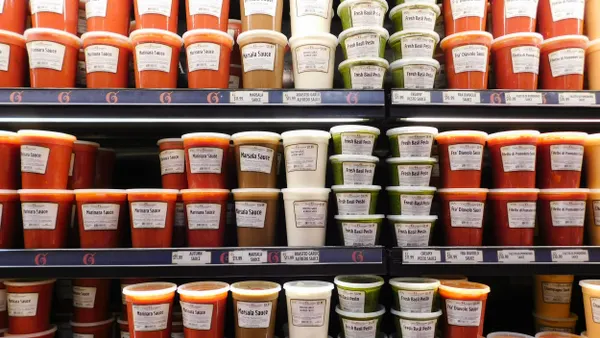Dive Brief:
-
Total sales in the prestige beauty market reached $18.8 billion in 2019, flat over the prior year, according to a February report from the NPD Group emailed to Retail Dive. The results were impacted by a 7% decline in makeup, which is the largest category in the segment, at $7.6 billion.
-
The numbers told a story that has been repeated for some time now: that cosmetics is on the decline as consumers pivot to skin care. Makeup was the only category that declined, according to NPD's report, while skin care rose 5% to $5.9 billion, fragrance was up 2% to $4.5 billion and hair care increased by 16%.
-
In discussing makeup's yearly performance, the report cited the "overall decline in makeup usage" as skin care rises, and noted that "the share gap between the two categories is narrowing."
Dive Insight:
Much buzz has been made lately about consumers shifting away from makeup in favor of a focus on skin care and more natural looks. Ulta lowered its guidance in August based on "headwinds" in the U.S. cosmetics market, which makes up about half of its business, and around the same time the popular beauty retailer was downgraded by Piper Jaffray, along with Estée Lauder, for the very same reason.
While NPD's Larissa Jensen, vice president and beauty industry adviser, called out beauty's response to the more natural makeup look as "key to its revival," she also pointed out the cyclical nature of makeup and skin care trends.
"Historically, NPD data has detected a shift between makeup and skincare every four to five years," Jensen said. "Based on this, and the slowdown in makeup that began to take hold in 2017, I anticipate we'll see makeup rebound in the next one to two years."
Erinn Murphy, managing director and senior research analyst at Piper Jaffray, said much the same in November, telling Retail Dive that beauty cycles tend to last three to four years. However, Murphy isn't as certain of an imminent return to the makeup cycle, given the changes in younger consumers, who are gravitating away from the category.
NPD Group's own research points to a shift away from makeup, with close to one-quarter of women in the U.S. reporting using much or somewhat less makeup today. That's partially as a result of more women working from home, but also due to the pursuit of a more natural look, the research firm said.
The "natural" phenomenon has played out in a few big ways in recent years, with the rise of DTC brands like Glossier that emphasize a more natural makeup look, and the outright purchase of "clean beauty" brand Drunk Elephant by Shiseido (for $845 million) as two examples.
Depending on how makeup and skin care trends develop, beauty players that depend on cosmetics for a large chunk of sales may have to make more serious changes to their merchandising mix.














